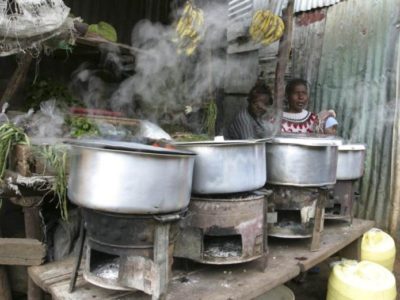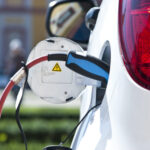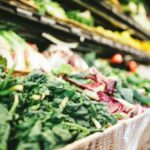Families in developing nations, especially Africa, South America, and Southeast Asia, commonly cook using unhealthy charcoal.
Charcoal is produced by heating fuelwood (or another biomass) in a kiln with only limited access to air, in a process called carbonization. This process makes a fuel of higher quality than the original wood.
But there is a lot of carbon dioxide and energy lost in this inefficient process and “products of incomplete combustion” or PICs. The PICs emitted during the charcoal-making process include carbon monoxide, methane, and nitrous oxide – all greenhouse gases (GHG). PICs are examples of indoor air pollution, and numerous scientific studies link exposure to PIC pollution to various problems, including heart and lung disease.
So, cooking with charcoal is unhealthy for hundreds of millions of people worldwide. As António Guterres, Secretary-General of the United Nations, says,” I have seen firsthand the importance of access to energy and clean cooking. It must play a central role in our work to ensure the realization of human needs and fundamental rights.”
The problem caught the attention of a company called KOKO. Their solution solves the charcoal health problem and goes beyond by offering customers additional convenience while reducing deforestation.
Greg Murray, Co-Founder and CEO of KOKO, explains the need for KOKO: “Every year, the charcoal industry in Africa drives 5 million acres of deforestation, 1 billion tons of carbon emissions, and hundreds of thousands of deaths from indoor air pollution.
KOKO customers buy a KOKO cooker and canister and refill their fuel canister at KOKO ATMs in 700 small shops around Nairobi, Kenya. The fuel is liquid bio-ethanol, made of waste from Kenya’s sugar processing industry which burns cleaner and faster than charcoal. The canister is linked to customer accounts using a computer chip so that customers can safely use mobile money. Customers using ATMs also get new healthy recipes and money-saving tips.
KOKO Cloud network integrates mobile money with banks to control money flow between customers, retailers, wholesalers, and financiers.
In addition, KOKO is also one of Africa’s leading climate-tech consumer platforms, producing and selling high-quality carbon credits (a market-based approach to lowering GHG emissions) and using the revenue to reduce customer pricing and increase usage.








